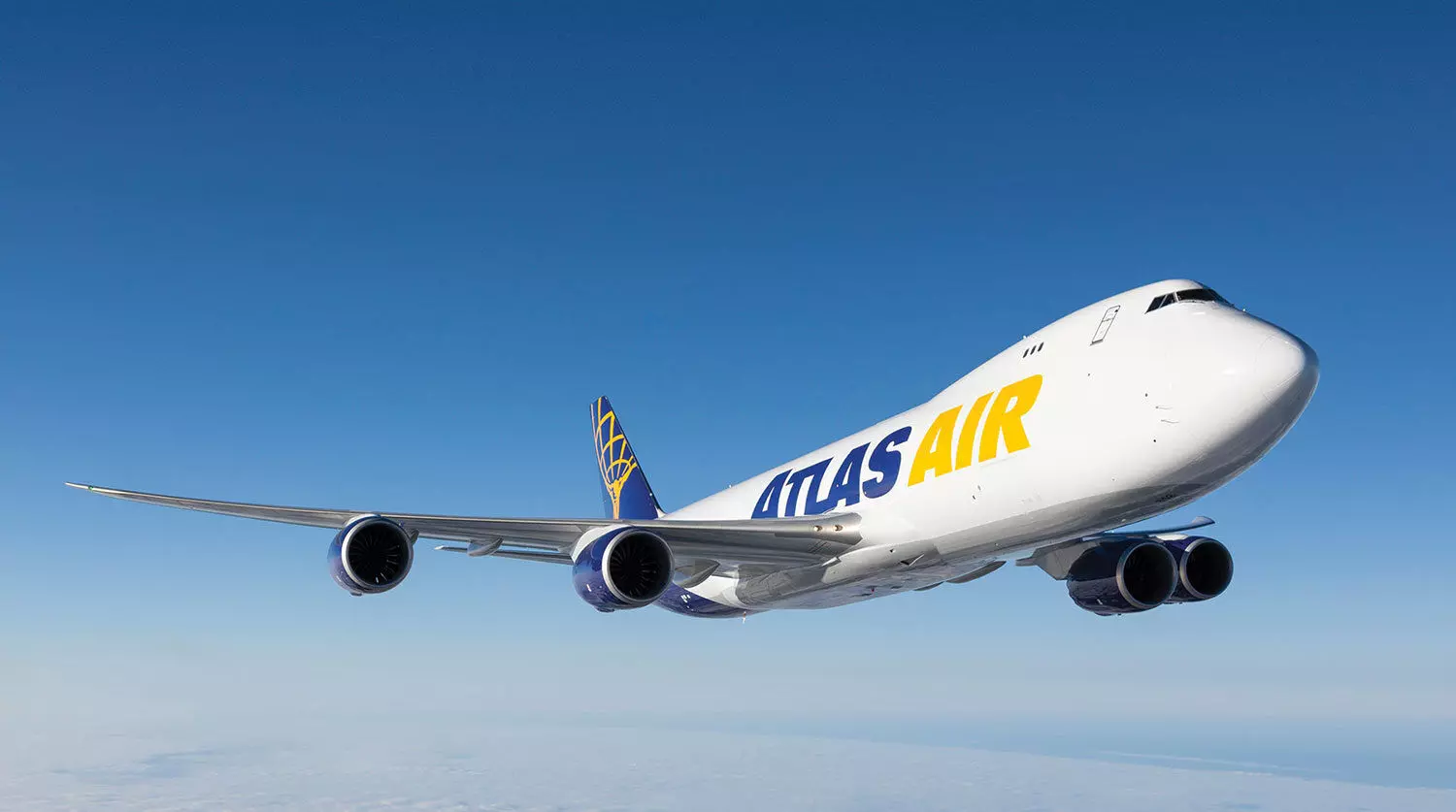
How Atlas performed in 2024 with 14% of global widebody cargo capacity
Publicly traded Atlas Air Worldwide Holdings was delisted from Nasdaq in March 2023 after its acquisition by an Apollo-led investment.

In 2024, the American cargo airline, chartered passenger airline, and aircraft lessor – Atlas Air – solidified its position as a leader in global aviation logistics, operating approximately 14% of all global widebody freighter capacity. This achievement results from a strategic transformation and a renewed focus on long-haul, widebody freighter operations, underpinned by a robust “One Atlas” strategy.
A year of transformation
The transformation began in March 2023 when publicly traded Atlas Air Worldwide Holdings was delisted from the Nasdaq following its acquisition by an Apollo-led investment group. This transition to private ownership enabled the company to implement significant changes and focus on long-term growth strategies. Atlas Air Worldwide is a leading provider of outsourced aircraft and aviation operating services. In addition to its core Atlas Air operations, the company’s portfolio includes Polar Air Cargo, a joint venture with DHL, and Titan Aviation, a specialised leasing company focused on freighters.
“We executed a growth strategy focused on long-haul, widebody flying and added eight widebody freighters to our fleet, bringing us to a total of 121 aircraft,” shared Michael Steen, CEO of Atlas Air, in a recent social media post. He also emphasised the company’s expanding roster of blue-chip customers.
In a different social media post, Antoine Munfakh, Partner at Apollo Global Management, highlighted the airline’s strong foundation: “Atlas has a blue-chip list of customers. It’s a tremendous business model and was totally misunderstood by the market.”
Operational excellence and expansion
In 2024 alone, Atlas Air flew 51,859 flights, covering over 134 million straight-line miles. The airline focused on long-haul operations, adding to its fleet to meet increasing global demand.
Patrick Kearney, Principal at Apollo Global Management, pointed to the strategic value of Atlas Air’s assets: “Atlas has assets that are not only in short supply now but are forecasted to remain scarce in the future. Combining that with the demand outlook makes it extremely interesting.”
Atlas Air’s diversified business model has also been a key driver of its success. During an exclusive interview with The STAT Trade Times at TIACA Air Cargo Forum in Miami in November 2024, Martin Drew, Chief Strategy and Transformation Officer, stated, “We work with the entire supply chain. We operate dedicated flights for shippers, forwarders, integrators, e-commerce companies, and even ocean carriers like MSC and CMA (CMA CGM). This diversity has allowed us to capitalise on strong market conditions.”
Addressing global supply chain challenges
Atlas Air operates in 70 countries and connects over 300 destinations, playing a central role in the global economy. However, challenges such as delays in aircraft deliveries from OEMs and conversion programmes have posed obstacles. Drew elaborated, “Demand is outweighing supply at the moment. Delays in delivery of 777 freighters and shortages of feedstock like the 777-300ER, still a desirable passenger aircraft, are adding to capacity constraints. Over 100 widebody freighters globally are now over 30 years old, and retirements are further tightening capacity.”
Despite these challenges, Atlas Air has taken proactive measures. The company has added 11 additional aircraft in the past year and continues to focus on expanding its fleet wherever possible. “Freighters are key to the global supply chain. With e-commerce growth, maintaining freighter capacity on specific trade lanes is essential to keep goods moving,” said Drew.
One Atlas: A unified strategy
Atlas Air’s “One Atlas” strategy has been instrumental in its transformation. Steen outlined the key pillars of this strategy:
Creating a thriving workplace: The company is committed to building a supportive culture for its 5,000 employees.
Enhancing performance excellence: Atlas Air is improving service quality and reliability by driving digitisation and automation.
Expanding customer relationships: The airline serves direct shippers, e-commerce platforms, express carriers, airlines, freight forwarders and ocean shipping companies.
Innovating for sustainability: Atlas Air collaborates with customers and partners to advance sustainable aviation solutions.
“Our ‘One Atlas’ strategy is the culmination of a focused strategic transformation and diversification model,” said Steen. “With an unmatched global footprint, scalable network, and the best team in the industry, we are strengthening our position as the world leader in outsourced aviation logistics. And we are just getting started.”
A global leader in widebody freighters
During the interview, Drew also mentioned that Atlas Air is the largest operator of 747 freighters and the second-largest cargo operator globally in FTK terms, trailing only FedEx. The company’s emphasis on long-term contracts, which constitute 90% of its business, provides stability and predictability for its operations and customers alike.
“Long-term contracts allow us to plan better and offer peace of mind to our customers, ensuring sustained capacity for their needs,” said Drew. This model has positioned Atlas Air as a reliable partner in the global supply chain, particularly for e-commerce giants like Amazon and Chinese platforms.
Positioned for future growth
The privatisation and new investment under Apollo’s leadership have positioned Atlas Air for future expansion. According to the CEO of the American company, Atlas Air is committed to becoming the undisputed leader in outsourced aviation logistics.
“We operate approximately 14% of all global widebody freighter capacity across the supply chain, carrying everything you can imagine – consumer products, aerospace equipment, pharmaceuticals, perishables, and even Formula One race cars and concert equipment [for global popstars including Taylor Swift] ,” stated Steen.
The CEO further added, "While our passenger operation is small in comparison to cargo, we are very proud to be the airline of choice for several Professional Sports Teams as well as the US Air Mobility Command."

